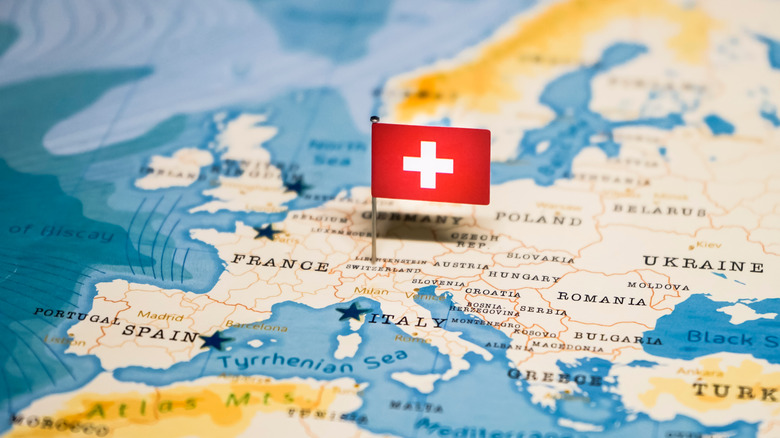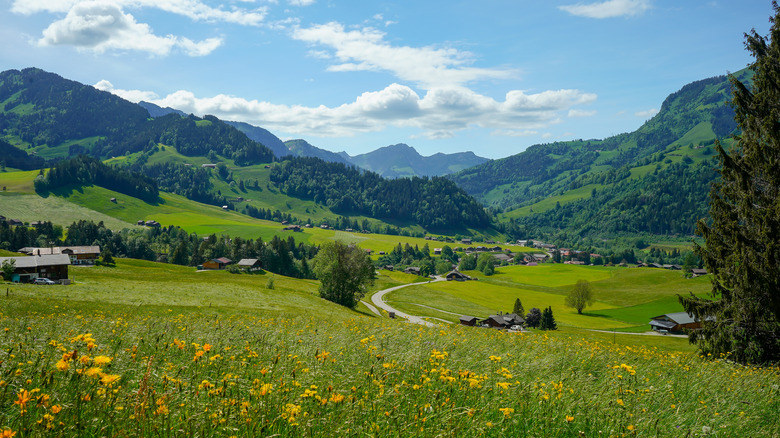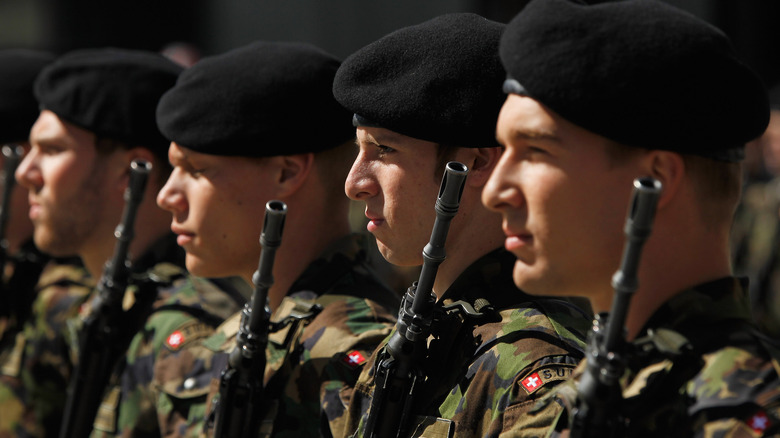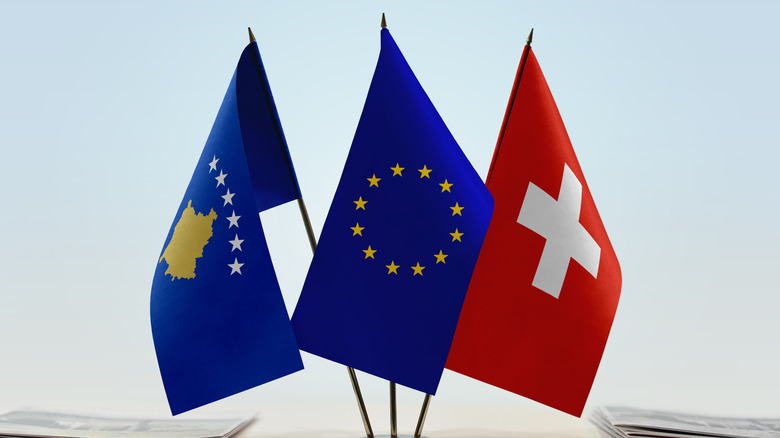The Real Reason Switzerland Remains Neutral
It may not have always been easy, but for centuries, Switzerland has maintained a policy of armed neutrality in international affairs — the oldest such policy in the world. The origins of Switzerland's neutrality date to the defeat of the Old Swiss Confederacy by the French at the Battle of Marignano in 1515. Following the humbling loss, the Swiss Confederacy abandoned its expansionist foreign policy and moved toward a policy of avoiding future conflict in the interest of self-preservation. However, it was the Napoleonic Wars that truly solidified Switzerland's position in the world as a neutral nation. France invaded Switzerland in 1798, and turned it into a satellite of Napoleon Bonaparte's empire, de facto forcing it to abandon its neutrality.
After Napoleon's defeat at Waterloo, the major European powers concluded that a neutral Switzerland would serve as a valuable buffer zone between France and Austria and contribute to stability in the region. During 1815's Congress of Vienna, they signed a declaration affirming Switzerland's "perpetual neutrality" within the international community that has been maintained ever since, according to the Swiss Broadcasting Corporation. It has not participated in a foreign war since its neutrality was established by the Treaty of Paris in 1815.
The League of Nations and WWI
Switzerland's great value as a neutral actor in Europe was best demonstrated during World War I and its bitter aftermath. "The war to end all wars," led to a push for more peaceful means of resolving international conflicts, with Switzerland at the forefront. Swiss neutrality kept the country out of the immensely complicated web of alliances that started the First World War in the first place, and at the time, the small mountain nation became an island of sanity in a sea of death.
With both sides desperately short of doctors, prisoners were carted off to Switzerland during the war for treatment. In small towns such as Chateau d'Oex (pictured above), French, German, and British troops were treated without prejudice, and left to recover in the gorgeous surroundings of the Swiss Alps, a world away from the muddy hellscape on the Western Front.
By the time the war came to an end, Switzerland's neutrality was truly appreciated. In February 1920, the country's neutral status was recognized again, during the Treaty of Versailles, and that year, the League of Nations was founded in the (vain) hope that such a conflict would not be repeated. The League's headquarters was placed in Geneva, the perfect place to resolve international disputes in a peaceful manner.
Switzerland's neutrality should not be confused for pacifism
History — especially World War II — has certainly tested the Swiss and their commitment to neutrality. It took serious resolve to be a small neutral country surrounded by totalitarian countries, as Germany occupied France. But the Swiss were determined to fiercely defend themselves. "It is of the greatest importance that we leave no doubt in anybody's mind that not even the most hopeless situation will make us capitulate voluntarily, and before we can be commanded we have got to be beaten," the Swiss newspaper, Volksrecht, insisted at the time, according to Stephen Hallbrook's book, "Target Switzerland."
For a militarily neutral country, Switzerland developed an army that created envy. "Man for man, Switzerland probably has the second best army in Europe today," Time reported during World War II, adding that an army three times its size "might need valuable months to crack. The Swiss Army can be mobilized in half an hour."
Following World War II — a calmer time, regionally — Switzerland has taken a leading role in global affairs by spearheading humanitarian efforts around the world. However, it has taken itself out of any kind of military operations. It has never joined the North Atlantic Treaty Organization (NATO) or the European Union. The small Alpine nation is so vehemently anti-interventionist that it didn't even join the United Nations until 2002. However, the Swiss still maintain an army for defense purposes, requiring part-time military service from all men between 18 and 34 years of age.
Not so neutral after all
In more recent history, Switzerland has actually taken sides in some conflicts and has even used economic sanctions to fight for certain causes. In the Spring of 2023, the country faced its toughest decision yet over whether to remain neutral over the War in Ukraine.
The Swiss agreed to take part in U.N. sanctions for the first time against Saddam Hussein's Iraqi government in the 1990s and more than once in the last century, Switzerland has risked getting dragged into various wars to some degree. Since the Gulf War, the country has used punitive economic measures against various countries, including Zimbabwe, North Korea, and Iran. Although not part of NATO, Switzerland has also been involved in several NATO-backed expeditions, in Kosovo, Bosnia and Herzegovina, and Afghanistan.
With popular support for Ukraine mounting in the country, the Swiss government considered going a step further in 2023, and discussed sending arms to the besieged country. The motion was rejected — but not by much — in a vote of 98 to 75 with two abstentions (via SWI).



